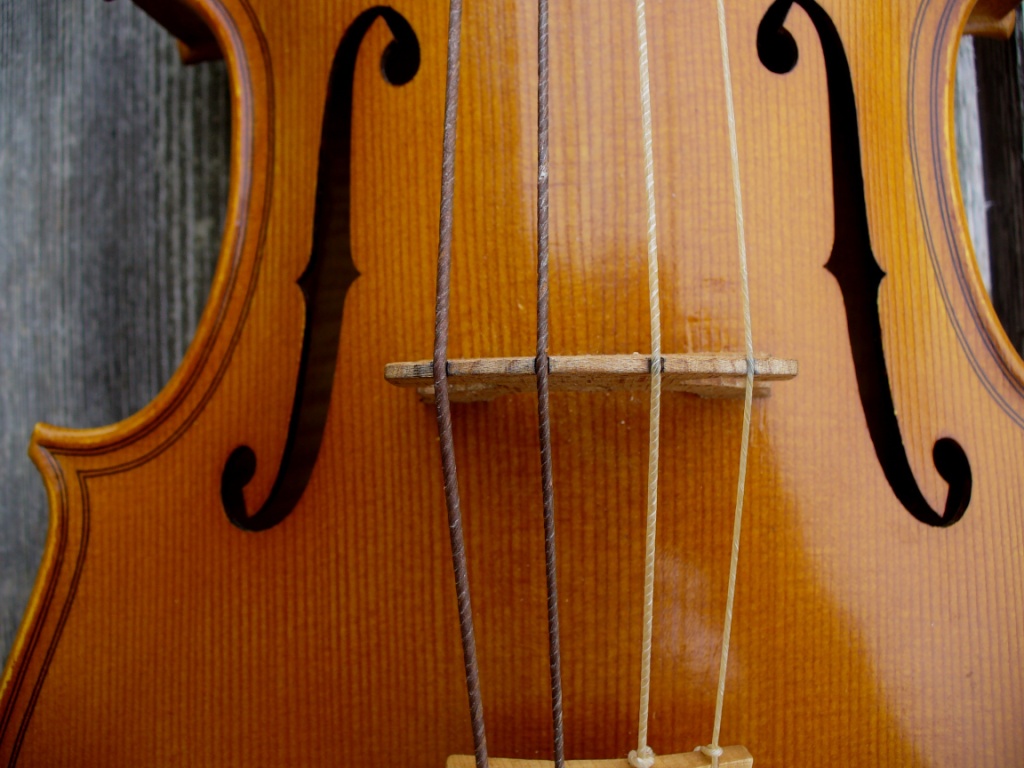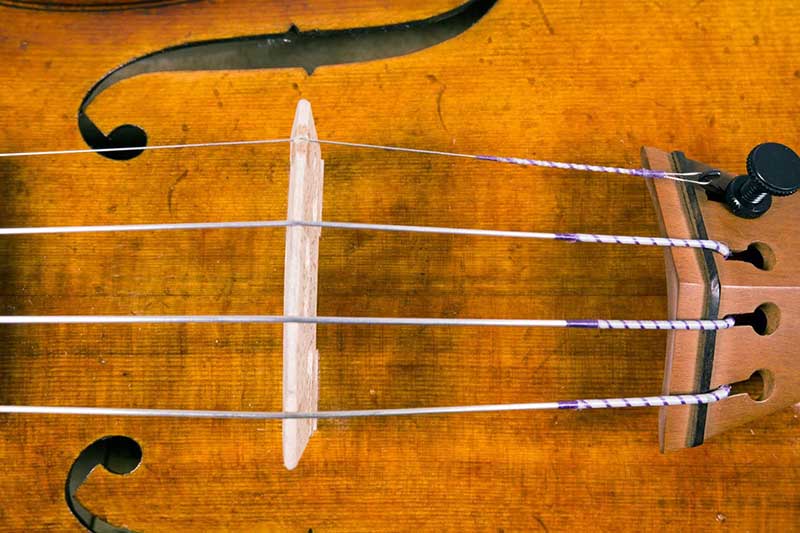If you are a lover of good sounds then you should know that there are instruments that are designed to produce amazing sounds. We are talking about instruments like the harp, guitar, piano, violin, and several others, and these are the best you can make a choice from. If you are interested in learning how to play the violin then you need to have knowledge on its strings build, and other things. What are violin strings made of? How can you play with ease?
The question we will be emphasizing on is to know what violin strings are made of, and you must have noticed that the quality of violin strings varies if you are already learning how to play the violin. One fact you have to know about the violin strings is the quality of string you make use of will either improve and enhance the sound being produced or it is going to affect it. Another problem you have to deal with is selecting the right violin string for you.
Violin strings also have the tendency to stretch and break just like the guitar strings, and there are so many reasons responsible for this. You might notice violin strings snaps while tuning its strings, and it is also possible for a violin string to fly off while you are playing during a live show or concert. You can see that it is difficult to predict when something like this is going to happen.
Replacing old strings might not be the only option you have when dealing with violin strings, but you are also presented with the option of re-stringing your violin strings. A violin is made of either a synthetic, gut, or metal material, and it comes down to a matter of price and preference for you to make up your mind on what material type you want to go for.
Do you have a particular style of music you want to play with the violin? Is there a specific sound you are aiming to obtain? Are you aiming at obtaining warm, bright, or you want both sounds? If you are searching or violin strings, you will see that there are several strings that serves so many purposes, so finding out the string that will provide you with what you need is of great importance.
One more thing we will like you to know on your musical journey is the fact that you have the ability to experiment with several strings in order to figure out what you really want. Make sure whatever string type you are going for is one that has been tested and trusted, so you do not return back to the market after a while to shop for another type of violin string.
Whatever the case may be, it is very essential that you learn about violin strings so you can be able to make a good choice. Where to learn about these string type might be the next question on your mind, but you do not have to worry about it as we will be discussing them in our next lines.
Trendy Post – How Many Strings Does A Bass Guitar Have
Content Navigation
What Are Violin Strings Made Of

Metal Strings
You can either refer to them as metal strings or core strings, and the metal string is one that most violin players make use of. Producing full and bright sounds is what they are designed to do, but it requires a proper technique for you to be able to get these sounds. Producing a stable pitch compared to gut strings is what the metal string also brings to the table, and you can trust the metal strings to last longer.
Anyone playing jazz and folk music will love making use of the metal string, and this is because these strings are durable and have good capacity. Intermediate and beginner violin players tend to go for this string since it is the common one, but another reason is because they will also find it very easy to play.
Gut Strings
A known history about violin strings is they are formed from the intestines of sheep, and they end up getting wrapped in copper or silver wire. Gut strings might not have the relevance they once had today, but so many violin players out there will love to work with them since they are capable of producing complex and warm tones. Another known fact about the gut string is the fact that it comes with varying gauges.
These varying gauges makes them sound more gritty and powerful, but the downside of these strings is that they do not do well under humid weather conditions. They will also require tuning them constantly so they can be able to stretch fully and stay in place. They don’t last, and yet, they are very expensive.
Check This Out – How Many Strings Does A Guitar Have
Synthetic Strings
The synthetic string is the final string we want to have a look at, and we are talking about strings that are made from composite and tech nylon materials. This type of string was first designed back in 1970, and they are also considered as a good option for beginners since they have a very fast pressure response time. Producing warm tones just like the other strings is what a synthetic string will offer violin players.
Another reason why they are perfect for beginners is because they do not need you to do too much in terms of maintaining them. Maintaining a stable pitch like the metal string does is yet another advantage that comes with going for the synthetic strings.
One piece of advice we want to leave you with when it comes to selecting a violin string is it all comes down to your playing needs and level at the end of the day. The tonal qualities you are aiming to obtain is yet another deciding factor when it comes to finding a suitable violin string, and this reasons applies to everyone whether you are a professional or a beginner.
Another point you should note is there are violins that will respond better to certain strings, and this means selecting the best violin string is as important as finding the perfect violin for you with the ideal violin bow. We understand that shopping for a violin string is one lengthy process that can also get complicated, but you shouldn’t be discouraged by this.
There are also other factors you need to keep in mind when looking for the right violin string. These factors are;
- String tension
- String gauge
Finally, one of the best persons that can give you advice regarding what violin string you need is a violin teacher. Meeting with a private teacher creates an opportunity for you to have answers to all the questions you have been meaning to ask.

